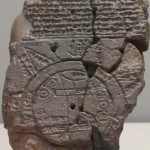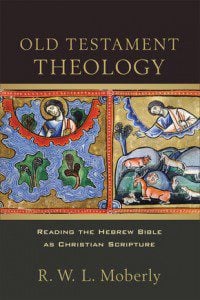 My desk is like a revolving door. Books land on it, I have to discern if it is a book for the blog or not, I read some and I give some away (to Northern students) and I shelve a few. But some books are not for blogging through, yet they deserve to be mentioned for those who are building libraries. So today I want to mention some fantastic new books.
My desk is like a revolving door. Books land on it, I have to discern if it is a book for the blog or not, I read some and I give some away (to Northern students) and I shelve a few. But some books are not for blogging through, yet they deserve to be mentioned for those who are building libraries. So today I want to mention some fantastic new books.
My former colleague and friend, along with a former student, Bradley Nassif and Brock Bingaman, put together a magnificent volume on the Eastern Orthodox anthology for spiritual formation, called The Philokalia. Brad and Brock’s book is called The Philokalia: A Classic Text of Orthodox Spirituality (foreword by Kallistos Ware; NY: Oxford University Press, 2012). The book is an anthology by experts on themes pertinent to the Philokalia: history, theological foundations, and spiritual practices. Some names: Andrew Louth, Rowan Williams, Mary B. Cunningham, and Verna E.F. Harrison’s sketch of women in the Philokalia. A splendid achievement.
Marion Ann Taylor, along with Agnes Choi, have put together a dictionary unlike any dictionary I’ve seen: A Handbook of Women Biblical Interpreters: A Historical and Biographical Guide (Grand Rapids: Baker, 2012). If you are tempted to think — as some no doubt are today — of how long such a book might be, well, it’s nearly 600 pages of dense and well-written information. As I sought to achieve rhetorically in my little e-book Junia is Not Alone, so this book achieves beyond anyone’s expectations: here you will find story after story of women Bible readers how are all but unknown in the church. So, pastors, buy this book and get it in your church library or make it public and think about using some stories here in your sermons. Each entry — 180 of them — has a short biography, a sketch of her interpretive work, and then a bibliography. This could be a fantastic book for a class on hermeneutics or church history — assigning each student to do some work on one of these women Bible readers.
The Reformation Commentary on Scripture, edited by Timothy George along with Scott Manetsch, now has volume 1: Genesis 1–11. Most of us do not have direct access to most resources from the Reformation (how many of us have even all of Calvin or Luther, let alone others, including the Anabaptists?), so what Tim George has done here is inestimable: this is a judicious collection of principal statements on how to read Genesis 1-11, which saves the pastor and professor oodles of time. It can also give us an immediate grip on the sorts of views being espoused and can guide us for own research into original texts.There’s a 30 page introduction as well.
The Book of Acts is finally receiving its due among commentators, including those of Barrett, Fitzmyer, Dunn, Pervo (which I have to say thinks Acts is a novel)[see a list here], but Acts has now taken a new step forward with the exhaustive (and exhausting) commentary by Craig S. Keener: Acts: An Exegetical Commentary: Volume 1: Introduction and 1:1–2:47 (Baker, 2012). Get this: More than 1000 pages so far, but 638 pages of that is Introduction! Yes, it’s exhaustive and detailed; No, it is more than most pastors have time for in sermon preparation. But, STILL, this will be the starting point for all Acts scholarship from now on!
And if you are fan of the cultural anthropology approach to the Bible, and that means the works of scholars like Bruce Malina, Jerome Neyrey and John Pilch, and have used Pilch’s Cultural Dictionary of the Bible, you will be interested that Eerdmans has now published a new volume containing yet more essays by Pilch. The book is called A Cultural Handbook to the Bible. I have over the years benefited from cultural anthropology, often in the writings of David DeSilva, but the work of Pilch makes this stuff very accessible. This one collects essays around the following topics: cosmos, earth, persons, family, language, human consciousness, God and the spirit world, and entertainment.










